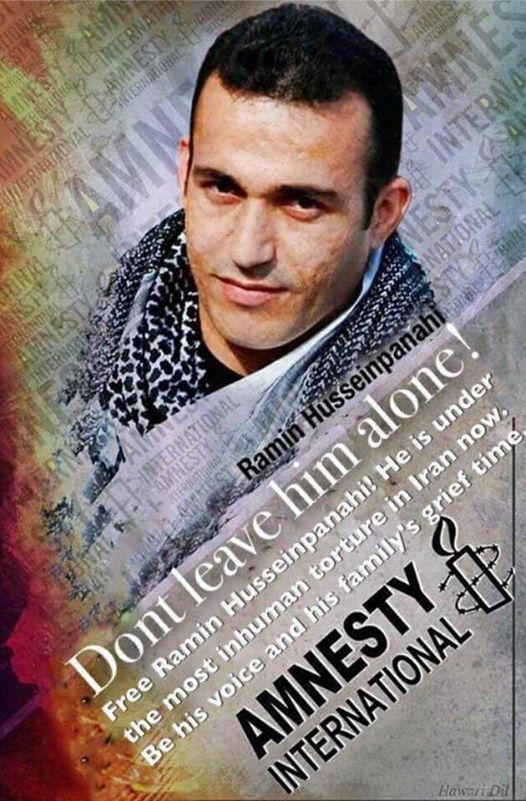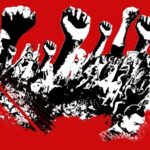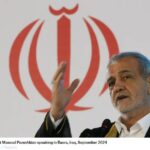
Four men from Iran’s Kurdish minority have been subjected to enforced disappearance since their arrests on 23 and 24 June. The authorities have refused to provide any information to their families about their fate or whereabouts. The men, who are all related, are at risk of extrajudicial execution, torture and other human rights violations.
Ramin Hossein Panahi, a member of the Komala armed opposition group, was arrested on 23 June after taking part in armed clashes with Iran’s Revolutionary Guards in the city of Sanandaj, Kurdistan province, north-west Iran. Amnesty International understands that Ramin Hossein Panahi was injured during the clashes. His family have not been informed of his fate or whereabouts but they learned through a local non-official source that, following his arrest, he was initially taken to a hospital for about an hour and then moved to an undisclosed location. His family is concerned that he will be denied critical medical care for his injuries. The Iranian authorities often deny prisoners access to adequate medical care, sometimes as an intentional act of cruelty intended to intimidate and punish them, or to extract forced “confessions”.
Hours after Ramin Hossein Panahi’s arrest, the Revolutionary Guards stormed his parents’ house in the village of Qeruchay, near Sanandaj, and arrested his brother, Afshin Hossein Panahi. They raided the house again on 24 June and arrested three other members of his family: Ahmad Hossein Panahi (brother-in-law); Zobeyr Hossein Panahi (distant relative); and Anvar Hossein Panahi (cousin), who has since been released. Information received by Amnesty International suggests that none of these men had any involvement with the armed clashes. Since their arrest, the authorities have refused to provide any information to their families about the fate or whereabouts of the three men still detained. On 10 July, the mother of Ramin Hossein Panahi visited the Ministry of Intelligence office in Sanandaj, where officials said that the Revolutionary Guards were responsible for his case and therefore his arrest, and that the Ministry of Intelligence had nothing to do with him. However, the Revolutionary Guards had previously told the family that they had transferred him to the detention of the Ministry of Intelligence so he was no longer their responsibility. The four men still in detention are victims of enforced disappearance, which is a crime under international law, and are at risk of torture and other ill-treatment.
PLEASE WRITE IMMEDIATELY IN ENGLISH, PERSIAN OR YOUR OWN LANGUAGE CALLING ON THE IRANIAN AUTHORITIES TO:
- Immediately reveal the fate and whereabouts of Ramin Hossein Panahi, Afshin Hossein Panahi, Ahmad Hossein Panahi, and Zobeyr Hossein Panahi;
- Release Afshin Hossein Panahi, Ahmad Hossein Panahi, and Zobeyr Hossein Panahi if they have been detained solely because of their family connection with Ramin Hossein Panahi;
- Ensure that all four men are provided with any medical care they may require and are protected from torture and other ill-treatment;
- Ensure that Ramin Hossein Panahi is provided with immediate access to medical care and to an independent lawyer of his choosing and promptly brought before a judge.
PLEASE SEND APPEALS BEFORE 24 AUGUST 2017 TO:
Justice Department of Kurdistan Province
Imam Shafe’i Square
Shahid Shebli Boulevard
Sanandaj
PO Box: 6614786964
Kurdistan Province
Iran
Head of the Judiciary
Ayatollah Sadegh Larijani
c/o Public Relations Office
Number 4, Deadend of 1 Azizi
Above Pasteur Intersection
Vali Asr Street
Tehran, Iran
And copies to:
Advisor to the President for Ethnic and Religious Minorities’ Affairs
Ali Younesi
Office of the Presidency
Pasteur Street, Pasteur Square
Tehran, IranAlso send copies to diplomatic representatives accredited to your country. Please insert local diplomatic addresses below:
Name Address 1 Address 2 Address 3 Fax Fax number Email Email address Salutation Salutation
Please check with your section office if sending appeals after the above date.
Additional Information
The men’s families have reported making strenuous efforts to locate them by visiting various government offices in Sanandaj and Qorveh, and the village of Dehgolan, all in Kurdistan province, but said that officials refused to disclose their fate or whereabouts. Instead, officials have directed threats and insults at them, describing their loved ones as “terrorists”.
Amnesty International understands that the arrests of Ramin Hossein Panahi, Afshin Hossein Panahi, Anvar Hossein Panahi, Ahmad Hossein Panahi, and Zobeyr Hossein Panahi were carried out in a violent manner. According to accounts from Ramin Hossein Panahi’s family, armed Revolutionary Guards wearing black masks broke down the front door of their family house on 24 June and beat the men, as well as Ramin Hossein Panahi’s sister and elderly father. They also warned them against holding gatherings or giving media interviews.
In addition to Ramin Hossein Panahi, three other men affiliated with the armed Kurdish opposition group Komala were involved in the exchange of gunfire on 23 June 2017. They included Sabah Hossein Panahi, Hamed Seyf Panahi and Behzad Nouri. Ramin Hossein Panahi was injured and subsequently arrested while the latter three were shot dead. The exchange of gunfire apparently started at a Revolutionary Guards checkpoint after the men were identified while travelling in a car and did not heed a call to stop. The authorities have refused to return the dead bodies of the three men to their families for burials and warned the families against holding memorial gatherings. Komala has claimed that six members of the Revolutionary Guards were also killed during the clashes but the Revolutionary Guards did not acknowledge any casualties in the official statement they issued on 23 June. Komala is an armed Kurdish opposition group which has been engaged in armed activities against the Islamic Republic of Iran since the 1980s.
Kurds are one of Iran’s disadvantaged ethnic minorities and face entrenched discrimination that curtails their access to employment, adequate housing and the exercise of their cultural, economic, civil and political rights. Continued economic neglect of provinces populated by Kurds, which include Kurdistan, Kermanshah and parts of West Azerbaijan, have further entrenched poverty and marginalization. Politically, Iran’s Kurdish minority have criticized the centralization of political life in Iran and the absence of any measures to introduce any form of minority self-government.
International law absolutely prohibits enforced disappearances and specifies that no exceptional circumstances whatsoever may be invoked as justification. Enforced disappearances are particularly cruel human rights violations. Individuals are cut off from the outside world, left knowing that their loved ones have no idea where they are or whether they are dead or alive. They are placed outside of the protection of the law and denied their right to legal representation or a fair trial. Treaty bodies, human rights courts and other human rights bodies have repeatedly found that enforced disappearances also violate the right to liberty and security of the person, the right not to be subjected to torture or other ill-treatment, the right to remedy, and the right to life. An enforced disappearance is also a “continuing crime”, which takes place so long as the disappeared person remains missing and information about his or her fate or whereabouts has not been provided by the state. Enforced disappearances also have a profound effect on the family members and friends of the disappeared individuals who are sometimes forced to anxiously wait years before they find out if their loved one is alive or dead.
Name: Ramin Hossein Panahi, Afshin Hossein Panahi, Ahmad Hossein Panahi, Zobeyr Hossein Panahi
Gender m/f: All male












 Posted in
Posted in 










